Place Value Teaching Resources
Browse place value charts, printable worksheets, games and more teaching resources created by teachers, for teachers like you.
This collection of curriculum-aligned and editable teacher-created resources has been carefully reviewed by the expert teachers on the Teach Starter team to ensure every single one is ready to use in the classroom. That means you can save hours on lesson planning with activities ready to print or use digitally!
Want to learn more about this section of the math curriculum, or just looking for fresh ideas to engage your students? Read on for a primer from our teacher team, including a look at the meaning of place value and tips on teaching place value in the classroom!
What Is Place Value?
In math, the term place value refers to the value of a digit in relation to its position in a number. For example, in the decimal system, which is based on powers of 10, the value of a digit in a number depends on its position relative to the decimal point, as follows:
- The digit in the ones place has a value of 1 times the digit.
- The digit in the tens place has a value of 10 times the digit.
- The digit in the hundreds place has a value of 100 times the digit.
- The digit in the thousands place has a value of 1000 times the digit.
- And so on.
Place Value Example
Like most math concepts, looking at place value examples with your students is key to helping them understand the concept. So let's look at an example of place value using the number 3,245:
- 3 is in the thousands place
- 2 is in the hundreds place
- 4 is in the tens place
- 5 is in the ones place
Therefore, its value can be calculated as:
(3 x 1000) + (2 x 100) + (4 x 10) + (5 x 1) = 3000 +200 +40 + 5 = 3,245.
Why Is Place Value Important?
Place value is an important concept for elementary students to understand as it is a major factor in understanding numbers and their overall value.
Understanding place value is also essential for performing the four math operations, and it will help students as they move on toward working with decimal fractions, scientific notation and other mathematical concepts.
What Is a Place Value Chart?
A handy tool for teaching this math concept is the place value chart! This visual teaching tool can be used to represent and organize numbers based on their value and position in a given number.
How to Use a Place Value Chart
A place value chart is typically divided into columns representing the different powers of 10 in our number system. Each column is labeled with the name of the place value it represents (e.g. ones, tens, hundreds, thousands, etc.) and contains a series of boxes or cells — each corresponding to a single digit.
The rightmost column will represent the ones place, the next column to the left will represent the tens place, the next represents the hundreds place and so on.
Students can place a particular number in their place value chart, determine its value, and then figure out two-digit, three-digit, four-digit, and larger numbers.
To read a place value chart, students work their way left or right. For example, if you start from the "ones" place, you can go left one space to the "tens" place, then on to the "hundreds" place and so on. As students enter the intermediate grades, they begin to learn about numbers to the right of the decimal point (tenths, hundredths, thousandths, etc.).
Place Value vs. Face Value
At some point, your students may ask about face value — after all, the terms sound similar! So are they interchangeable? The answer is no.
Face value and place value — despite their similar names — are not the same, but they are related.
As we've already noted, the place value of a digit tells us the value of that digit based on its position in a number. The place value of a digit changes depending on where it is in the number.
On the other hand, the face value of a digit tells us the actual value of the digit itself, regardless of its position in the number. So, for example, in the number 357, the face value of the digit 5 is simply 5.
In essence, place value is what helps us understand the value of a number based on the position of its digits, but face value is what helps us understand the value of individual digits in a number.
- Plus Plan
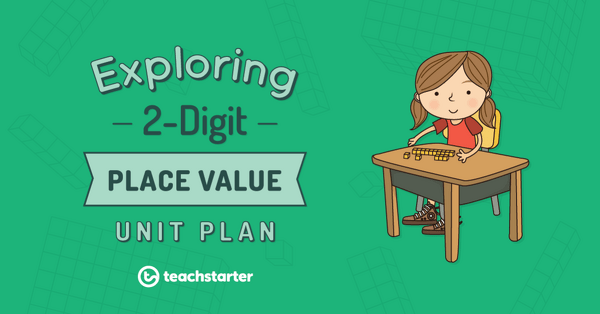
Assessment - Representing 2-Digit Numbers
An assessment task in which students will demonstrate an understanding of 2-digit place value.
- Plus Plan
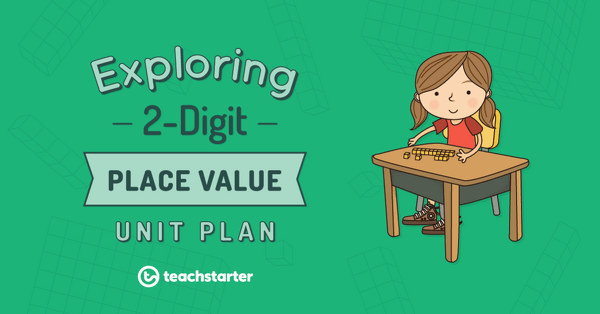
Decomposing and Expanding 2-Digit Numbers
A 60-minute lesson in which students will understand how 2-digit numbers can be decomposed.
- Plus Plan
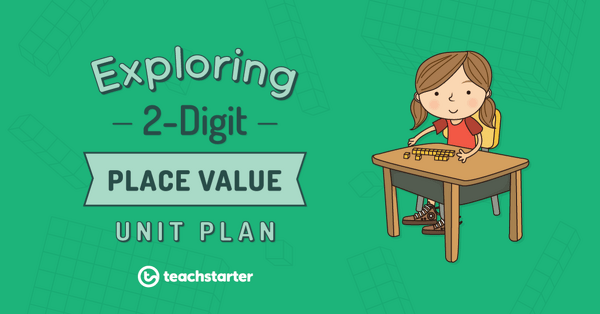
2-Digit Place Value
A 60-minute lesson in which students will understand that 2-digit numbers are made up of tens and ones.
- Plus Plan
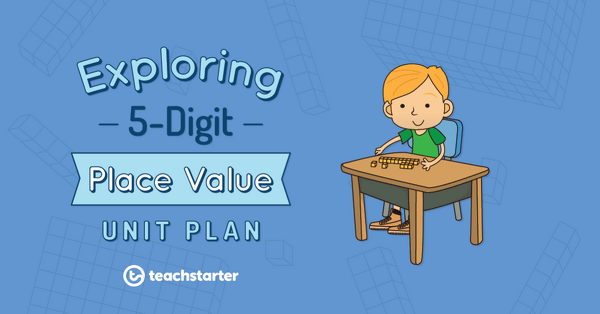
Exploring 5-Digit Place Value - Assessment
An assessment task in which students will demonstrate an understanding of place value in the ten thousands place.
- Plus Plan
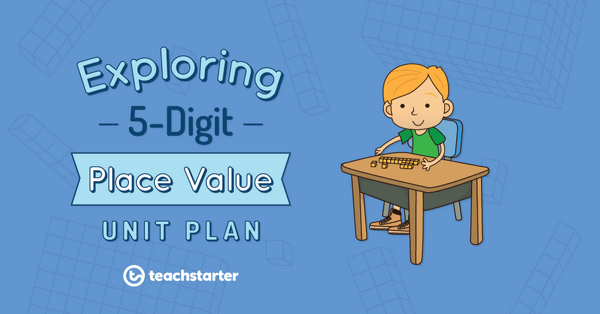
Comparing and Ordering Beyond 10,000
A 60-minute lesson in which students will compare and order 5-digit numbers.
- Plus Plan
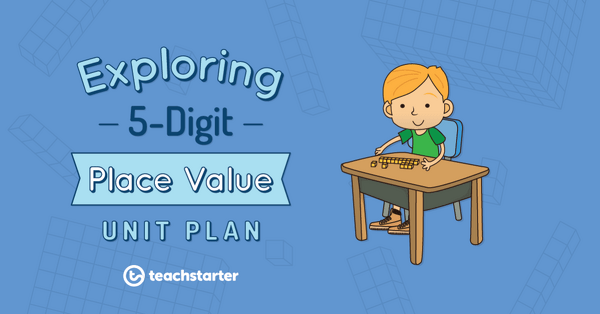
Multiplying and Dividing by 10 and 100
A 60-minute lesson in which students will multiply and divide larger numbers by 10 and 100.